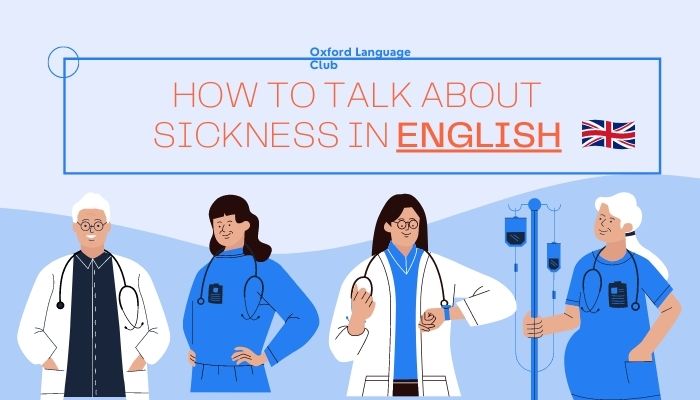


You have to know different expressions if you want to be a good English speaker. Knowing more than one way to say something can make your English sound more natural, and it will help you understand native English speakers better.
Let's take a look at the most common ways to say that you are sick in English.
1. I'm sick.
Obviously, this is the basic and straightforward way.
We can also add adverbs to give more detail.
We can also replace the "be verb" with the verb "feel".
2. I am sick as a dog.
This is a common expression that means "very sick".
3. I have a cold.
We can use this simple sentence to tell what kind of illness we have.
We can use it with other illnesses and symptoms.
4. I'm under the weather.
This is a common idiom. It simply means, "I am sick."
5. I am ill.
The word "ill" has the same meaning as "sick". However, "sick" is used much more often than the word "ill".
6. I feel terrible.
This expression can have two meanings.
We can use it to show that we are sick.
Or we can use it to show that we feel sorry or bad like when we regret something.
7. I have come down with something.
We use the phrase "come down with" to say that we have become sick. We use the word "something" when we are not sure what illness we have.
If we know, then we can replace "something" with the name of the illness.
It is common to use "I think..." with this expression.
8. I'm might be coming down with something.
This is the same as above, but we use this expression when we are not sure yet if we are sick. We use this in the stage before we get really sick, like when we are starting to feel sick but still are not sure.
9. I've caught a cold.
It is common to use the verb "to catch" when talking about becoming sick. It has the same meaning as "I've gotten a cold".
We often use this expression in the present perfect tense.
But, we can also use the past tense and it has the same meaning.
We use this expression a lot when we know where we got sick or who gave us the illness.
10. I caught a bug.
"A bug" is slang for illness or virus. So, this is a casual expression to say that we are sick. "A bug" is not a specific illness. It is just a general word for being sick.
11. I'm not feeling well.
This is a very common expression that native English speakers used when they are sick.
But, we can also use this when we are hungover or we eat too many cookies.
12. I think I am going to be sick.
This expression means that we think that we are going to throw up or vomit. We only use this when we are talking about vomiting.
We can use the following expressions when we think that we are becoming sick.
Use this article to expand your English vocabulary and help you take your English skills to the next level. There are certain situations when the language that you learned in this English lesson can be very useful. Try to use one of these phrases or expressions the next time you speak English. The more English expressions and idioms that you know, the easier it will be for you when you have a conversation in English.






















